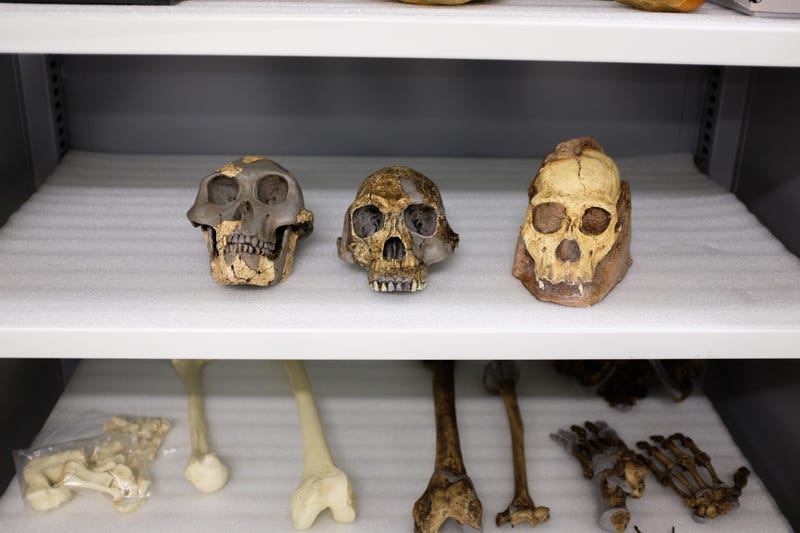Temporal evidence shows Australopithecus sediba is unlikely to be the ancestor of Homo
Andrew Du* and Zeresenay Alemseged
Department of Organismal Biology and Anatomy, The University of Chicago, Chicago, IL 60637, USA.
↵*Corresponding author. Email: andrewdu@uchicago.edu
Science Advances 08 May 2019:Vol. 5, no. 5, eaav9038

Fossil casts of Australopithecus afarensis (left), Homo habilis (center), and Australopithecus sediba (right). Image: Matt Wood, UChicago
Abstract
Understanding the emergence of the genus Homo is a pressing problem in the study of human origins. Australopithecus sediba has recently been proposed as the ancestral species of Homo, although it postdates earliest Homo by 800,000 years. Here, we use probability models to demonstrate that observing an ancestor’s fossil horizon that is at least 800,000 years younger than the descendant’s fossil horizon is unlikely (about 0.09% on average). We corroborate these results by searching the literature and finding that within pairs of purported hominin ancestor–descendant species, in only one case did the first-discovered fossil in the ancestor postdate that from the descendant, and the age difference between these fossils was much less than the difference observed between A. sediba and earliest Homo. Together, these results suggest it is highly unlikely that A. sediba is ancestral to Homo, and the most viable candidate ancestral species remains Australopithecus afarensis.
FREE PDF: Science Advances


